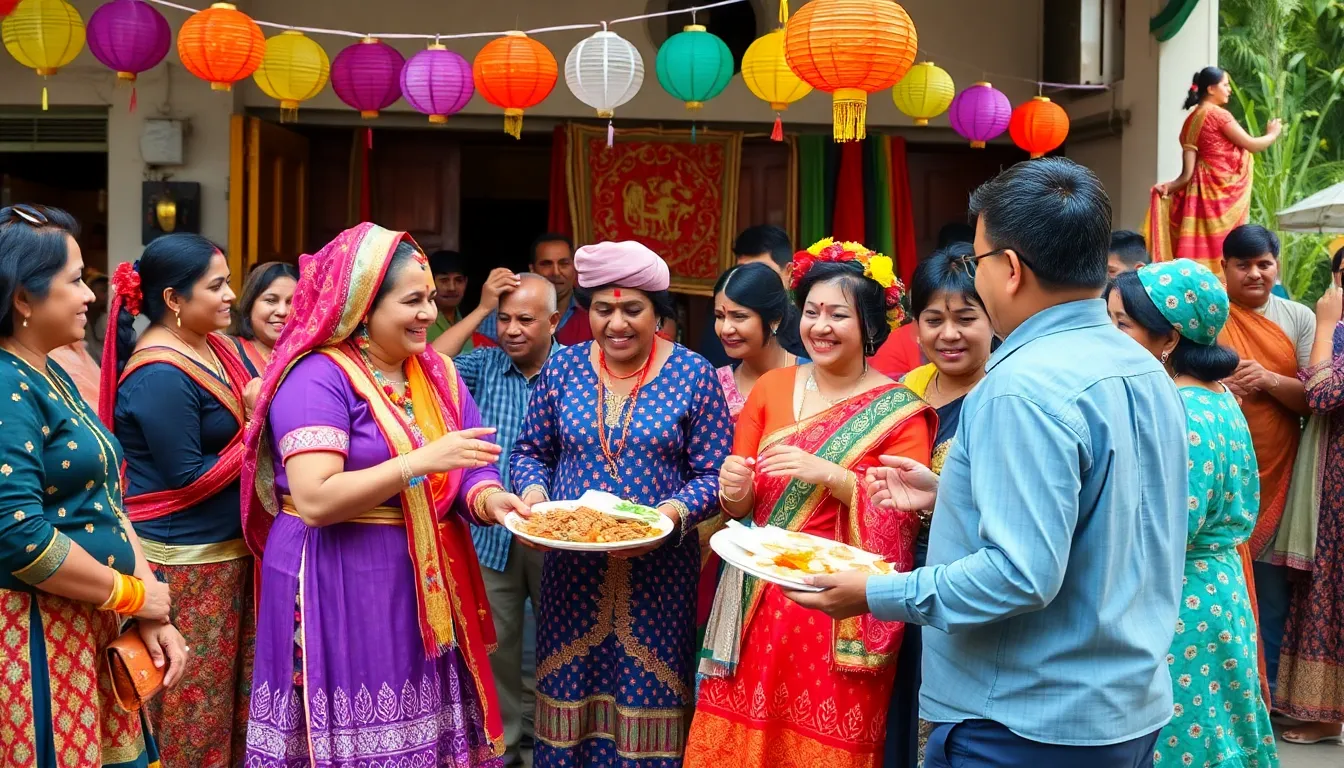Table of Contents
ToggleCultural observances are like the spice of life, adding flavor and excitement to our daily routines. They remind us that the world is a vibrant tapestry of traditions, celebrations, and quirky rituals. From the joyous chaos of festivals to the solemnity of remembrance days, these observances connect people across the globe in ways that can spark joy, laughter, and sometimes even a little confusion.
Overview of Cultural Observances
Cultural observances encompass various traditions and rituals that enrich human experiences. Celebrations and memorials serve as vital connections among people, shaping identities and communities.
Definition and Importance
Cultural observances refer to practices that reflect the shared beliefs and values of a group. These events promote communal identity and strengthen social bonds. Understanding cultural observances fosters respect and appreciation for diversity. Activities like festivals, religious ceremonies, and national holidays not only celebrate heritage but also provide opportunities for individuals to express their cultural pride.
Historical Context
Historical roots of cultural observances trace back to ancient civilizations. Early societies celebrated agricultural cycles, significant milestones, and religious events. These observances evolved over centuries, influenced by social changes and globalization. Modern-day cultural practices often blend traditional elements with contemporary influences, preserving the essence of ancestral customs while adapting to present-day contexts.
Types of Cultural Observances

Cultural observances encompass various types that reflect diverse human experiences. Each category contributes uniquely to communal identity and social bonds.
Religious Observances
Religious observances manifest in various forms, including rituals, services, and festivals. Many societies participate in observances such as Christmas, Ramadan, and Diwali, each representing distinct spiritual beliefs. Faith-based practices often involve prayer, fasting, and special gatherings, fostering a sense of belonging among adherents. These observances enable individuals to connect deeply with their faith and community. Examples include Easter celebrations in Christianity and the observance of Yom Kippur in Judaism.
National Celebrations
National celebrations invoke patriotic sentiments and showcase a country’s history and culture. Independence Day in the United States and Bastille Day in France exemplify such observances, marked by parades and fireworks. Each celebration typically reflects a shared narrative, reinforcing collective identity among citizens. These events provide an opportunity for people to unite and reflect on their country’s values. National holidays often include civic ceremonies, music, and traditional foods that embody national heritage.
Local Traditions
Local traditions provide a glimpse into the unique cultural fabric of specific communities. Each town or region often celebrates its history through specific customs and festivals. Examples include annual harvest festivals, local fairs, and unique cultural events that highlight regional crafts and cuisine. Such observances invite participation from residents and visitors alike, fostering community spirit. They also serve to preserve distinct identities, ensuring traditions pass through generations, thus enriching local culture.
Impact of Cultural Observances
Cultural observances significantly influence various aspects of society, fostering connections and generating economic opportunities. These effects extend into social unity and financial growth.
Social Cohesion
Social cohesion thrives through cultural observances. Celebrations and rituals bring individuals together, strengthening community bonds. Shared experiences during events like Diwali or Christmas create opportunities for individuals to connect meaningfully. Participation in local festivals fosters a sense of belonging among residents. Community service activities during cultural events promote collaboration and mutual support. Moreover, these observances often encourage tolerance and respect for diverse backgrounds, leading to more harmonious societies. By emphasizing common values, cultural observances enhance social stability and collective identity.
Economic Benefits
Economic benefits stem from cultural observances. Festivals attract tourism, boosting local economies across the globe. Increased visitor numbers during major events generate revenue for businesses, including hotels, restaurants, and attractions. Employment opportunities also arise, as local artisans and vendors often sell traditional goods and foods. Moreover, businesses use cultural events to promote their products and services, enhancing customer engagement. Through sponsorship and partnership opportunities, cultural observances stimulate economic growth within communities. These celebratory events reinforce local identity while driving financial sustainability.
Challenges Faced by Cultural Observances
Cultural observances face various challenges that impact their significance and continuity.
Globalization and Cultural Homogenization
Globalization contributes to the blending of traditions, often diluting unique cultural practices. Exposure to global media and multinational corporations influences local customs, making them resemble more mainstream or popular trends. As a result, traditional rites may lose their distinctive features over time. Many communities experience pressure to conform to global values, leading to the erosion of local identities. The challenge lies in balancing globalization’s benefits, such as economic opportunities, with the need to preserve unique cultural characteristics. Communities strive to maintain their traditions while navigating a rapidly changing world.
Preservation of Traditions
Tradition preservation faces challenges from both internal and external forces. Younger generations may prioritize modern lifestyles over ancestral customs, leading to decreased participation in cultural observances. Additionally, economic pressures can divert attention away from local festivities. Many communities work hard to document and promote their traditions as a means of survival. Engaging education systems can foster appreciation for cultural heritage among youth. Collaborative efforts involving workshops and community events often help in reviving interest. Preserving these traditions ensures that future generations connect with their cultural roots and embrace their shared history.
Cultural observances play a pivotal role in shaping human experiences and fostering community connections. They enrich lives by celebrating shared values and traditions while promoting understanding and respect for diversity. As societies navigate the challenges of globalization and cultural homogenization, the preservation of these practices becomes increasingly vital.
Communities are stepping up to ensure that younger generations appreciate their heritage through education and engagement. By embracing cultural observances, individuals not only honor their past but also contribute to a more inclusive and vibrant future. The continued celebration of these traditions will help maintain the unique identities that define communities around the world.








